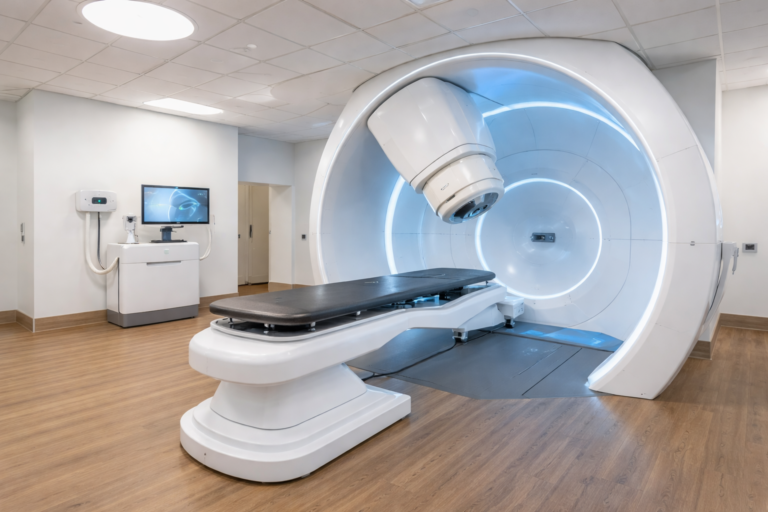
Today, GE HealthCare (Nasdaq: GEHC) introduced SIGNA MAGNUS, a head-only magnetic resonance (MR) scanner awaiting FDA 510(k) approval. It’s specifically crafted to propel advancements in neuroscience, addressing limitations of conventional whole-body MR systems. Neuroscience, especially in researching psychiatric conditions and neurological disorders like Alzheimer’s, has been hindered by technological and biological constraints, leaving much of brain structure and function unexplored.
Today, with 43% of the global population grappling with neurological disorders, the necessity to broaden MRI’s neurological clinical applications is urgent. SIGNA MAGNUS by GE HealthCare embodies their vision of the most advanced 3.0T MR imaging device, tailored for top-tier neurological and oncological research in head-only imaging. It stands as the epitome of MR excellence, promising detail and clarity essential for exploring brain microstructure, microvasculature, and function comprehensively. Through SIGNA MAGNUS, GE HealthCare aims to empower neuroscientists, neurologists, neuroradiologists, and oncologists to surpass limitations, enhancing the diagnosis, understanding, and treatment of complex diseases.
CEO Kelly Londy remarked, “With SIGNA MAGNUS, we’re not just offering a tool; we’re setting new benchmarks in medical research and future clinical care.”
This cutting-edge system boasts superior gradient performance with HyperG gradient technology, featuring 300 mT/m and 750 T/m/s, facilitating detection of previously unattainable fine details. Researchers can harness SIGNA MAGNUS capabilities to expand advanced anatomical, diffusion, and functional techniques, bolstered by GE HealthCare’s latest deep-learning algorithms. Designed to unlock new research opportunities, SIGNA MAGNUS aids in revealing new parameters and biomarkers with its vast potential. Its innovative asymmetric gradient design enables exceptional diffusion performance, achieving high B-value diffusion with short echo times (TEs), refining neural architecture understanding. Moreover, many GE HealthCare 3.0T systems are upgradable to SIGNA MAGNUS, offering potential cost savings.
In March 2024, the investigational MAGNUS system was successfully installed at Brigham and Women’s Hospital, a leading research institution. The Brigham team will play a pivotal role in collaborative high-performance neuro MR research with GE HealthCare. “With this system, we will be able to measure things that weren’t possible with conventional MRI,” stated Carl-Fredrik Westin, PhD, the project’s principal investigator.
GE HealthCare remains at the forefront of medical research and healthcare delivery transformation, fostering innovation and collaboration to ensure scientific advancements translate into meaningful global health outcomes.
Discover more about SIGNA MAGNUS at the International Society for Magnetic Resonance in Medicine (ISMRM) Annual Meeting, from May 4-9, 2024, in Singapore, or online at gehealthcare.com.
About GE HealthCare Technologies Inc.
GE HealthCare is a global leader in medical technology, pharmaceutical diagnostics, and digital solutions, committed to providing integrated solutions, services, and data analytics to optimize hospitals, clinicians, therapies, and patient outcomes. With over 125 years of experience, GE HealthCare advances personalized, connected, and compassionate care, simplifying the patient journey across the care pathway. Their Imaging, Ultrasound, Patient Care Solutions, and Pharmaceutical Diagnostics businesses work together to enhance patient care from diagnosis to monitoring. With approximately 51,000 colleagues, GE HealthCare is dedicated to creating a limitless healthcare world, with an annual revenue of $19.6 billion.




